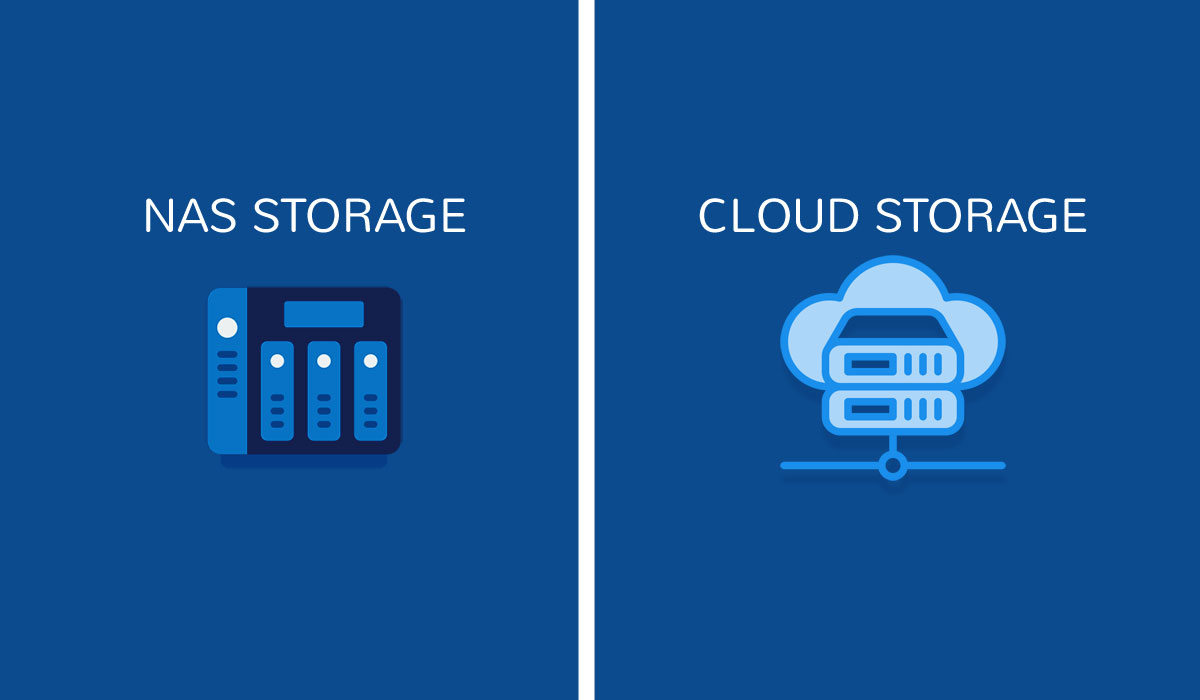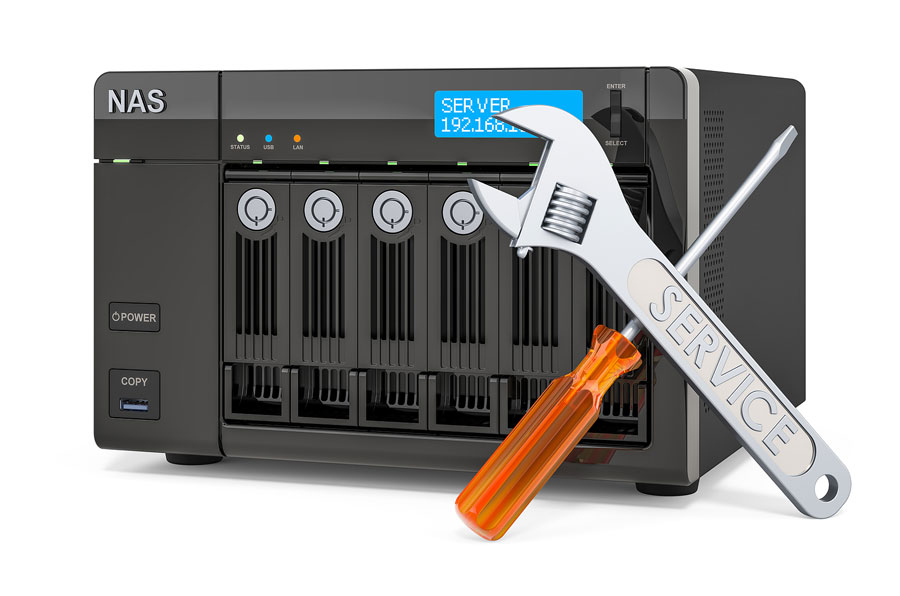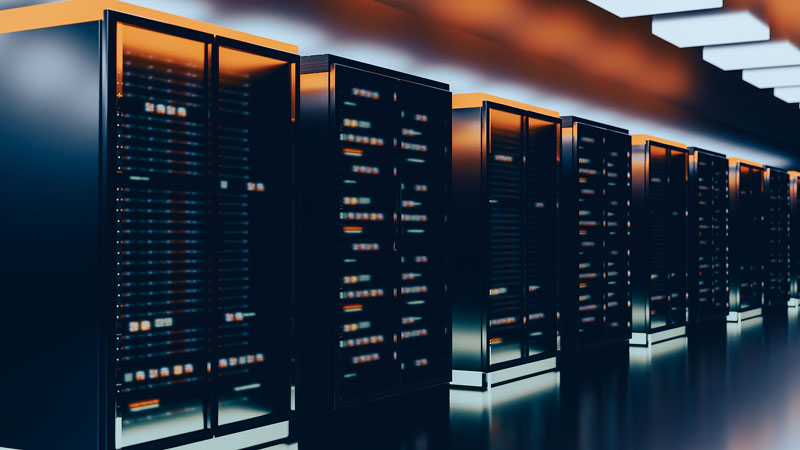

Cost-effective storage capacity. This is the advantage that everyone appreciates when considering the use of a NAS device in the company.
This high capacity can distract us from its drawbacks, without considering the many advantages that a system like Dataprius offers.
There are many reasons why a cloud system outperforms this type of solution, including security, management and continuity.

In a world where cybersecurity is paramount, consideration must be given to whether the company is capable of taking the risks.
Instead of contracting external services, the company chooses to provide these services itself. This can lead to security problems by someone within the company who is not trained in security.
It is part of the business strategy to decide whether to focus on your business or to spend time managing resources.
Sharing files with customers and remote work are common activities on file storage.
Our customers expect the system to always work, at any time and from any place, so it is desirable that the system is free of physical incidents.
With Dataprius cloud storage, these incidents are reduced to the minimum possible, offering the highest possible security.
The service continuity of a NAS
can be compromised by a simple power outage as it resides on company premises.
A device failure will not only stop work and sharing, it can mean loss of company data.
A connectivity outage of the NAS device will stop access to the company's files.
A physical incident at the business such as theft or fire could result in the loss of company business files.

No NAS server provides the level of continuity and resilience that a cloud system can provide.
Thanks to its architecture, cloud services are designed to offer 24 hours a day, 365 days a year continuity.

Currently, the Dataprius network consists of 18 servers residing in different countries.
Unlike a NAS server, which is a single point of storage.
The server network of a Cloud platform allows redundancy, if one server has a problem, another one picks up the work. It allows duplicate storage and backups in another geographical location.
The servers of a Cloud platform reside in data centres or Datacenters. No company has the means to prevent incidents as those provided by a high-quality Datacenter.
A Datacenter has measures to prevent power cuts, connectivity failures, catastrophes such as fires, earthquakes or floods.
If a NAS server is acquired, it is absolutely necessary to have some IT knowledge for installation, access permissions and configurations.
Cloud systems are designed to be managed by people with little knowledge of computers and server configuration.
If the connection offers 400 Mbs, 4users connected to 100Mbs will be enough to
saturate its capacity.
A NAS server's bottleneck is determined
by the Internet connection.
A Cloud platform resides in a Datacenter where connectivity is measured in Gbs.
The service never saturates and offers high performance for hundreds and thousands of concurrent users.
The cybersecurity of a NAS driver is compromised from the moment it is installed. If external access is provided, maintenance tasks, updates, attack prevention, firewall and router configurations routines, etc. must be carried out.
Cloud systems are dedicated services provided by specialised companies. There are resources and personnel available to maintain the security of the system. The Datacenter infrastructures themselves are already designed for security.
When you store customer data in your company, you are subject to compliance with data protection regulations.
When using a NAS server, you are responsible for the data at your own risk.
Data protection can be delegated to the provider. The provider can guarantee compliance by means of a contract and the adoption of the measures required by law.
Cloud file systems come equipped with a series of tools for managing and working with files.
Cloud systems are designed to facilitate common tasks with files, such as sharing documents with clients and collaborators or editing Office files.
Dataprius has mechanisms for tracking and controlling actions on documents. It also has data protection measures, as its service depends largely on this.
Cloud storage such as Dataprius provides extras such as: technical support, backups in another location, access via mobile devices, integration with other applications, etc.
A Cloud system is accessed through a series of applications.
These applications are designed to offer maximum ease of use. Both internally and externally, simplicity is a priority.
The level of friction and learning curve of a Cloud file system is minimal.
They are marketed over the Internet and may offer free or trial versions, if it is not user-friendly, clients will not accept it.
Once you have purchased a NAS, it is yours to manage.
Testing a NAS before you buy it could be complicated, you would have to agree to return it with the retailer, as long as it is in good condition.
You would have to pay the money it costs and not break the hardware warranty.
The Cloud can be tested from your computer. All you have to do is install the application, upload the files, prove that you can access them from your computer, mobile phone or tablet. All at zero cost, as easy as a few mouse clicks.
The strength of the NAS is the speed for large files on the local network.
Using a NAS is recommended when large files are stored and frequent use is required. For example, large video and image files.
Therefore, an appropriate solution would be NAS device, if you need maximum upload speed for many files that you use on a daily basis, or when you do not need them to be available on the Internet.
In short, if you need to store a large volume of files, these files are very heavy and are used only occasionally, then a NAS is ideal both at home and in the company. In this context the Cloud can be slow due to a slow Internet connection.
If the files are not huge in size, we will enjoy ubiquitous storage with permanent availability.
In particular, when high availability is required both from inside and outside the company. Being able to access files and work from anywhere. It's not just about storage, it's about having mechanisms in place that manage multiple user access and preserve data integrity.
In companies or organisations with multiple locations, flexible working hours and a work-life balance, having an Intranet as a central place to access documents is key.
Delegate security, legal compliance, maintenance tasks, backups to the provider. You have a system that prevents accidental deletions, that generates versions of the files you work with and controls the actions of the equipment and avoids the danger of viruses such as Ransomware or Cryptolocker.
A system adjusted to your storage and usage needs at all times. You pay just for what you use and it never falls short. Nor will it become obsolete, it is updated in terms of functionality and security needs. Technical support is also available for any type of incident, there is technical staff at the system's and your disposal every day.
Simplicity in the organisation of information, data and permissions. Let's not forget that access to files is identical both at home and in the office.